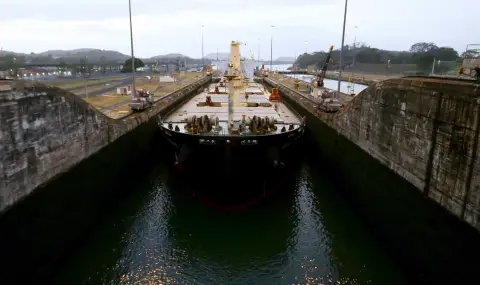The number of container ships passing through the Red Sea has decreased by 90% this year compared to the same period in 2023 due to Houthi attacks, reports the Financial Times newspaper, citing one of the world's largest shipping consulting companies, Clarksons.
According to Rolf Haben Jansen, CEO of Hapag-Lloyd, one of the world's leading ocean carriers, the diversion of ships to Asia around the Cape of Good Hope " “It will continue and it is very difficult to imagine when that will change. "
The transit passages of merchant ships of some companies on a long route (up to plus 20 days) around the Cape of Good Hope. have led to increased fuel consumption, increased insurance costs due to the increased risk of attack and increased container shipping rates. The biggest problems arise for companies trying to “transport food, flowers, other perishable products”, says the vice president of Swiss logistics group Kuehne + Nagel. There is a literal “market destruction“ associated with such goods, he emphasizes.
The shipping industry is facing many challenges, “there has never been anything like this in 30 years in the industry”, says Jan Rindbo, head of Norden, one of the world's largest dry cargo and tanker operators.
As previously reported, cargo traffic through the Suez Canal fell by two-thirds in the past year to April due to the diversion of traffic following attacks by Yemen's Houthi rebels Ansar Allah on ships in the Red Sea. Cargo traffic on another important shipping artery, the Bab el Mandeb Strait, has decreased by 59%.
Following the escalation of the conflict in the Gaza Strip, Ansar Allah has warned that it will carry out attacks on Israeli territory and will not allow related ships to pass through the waters of the Red Sea and the Bab al-Mandeb Strait until the operation in the Palestinian enclave ceases. Since mid-November last year, the Houthis have attacked dozens of civilian ships in the Red Sea and the Gulf of Aden.
